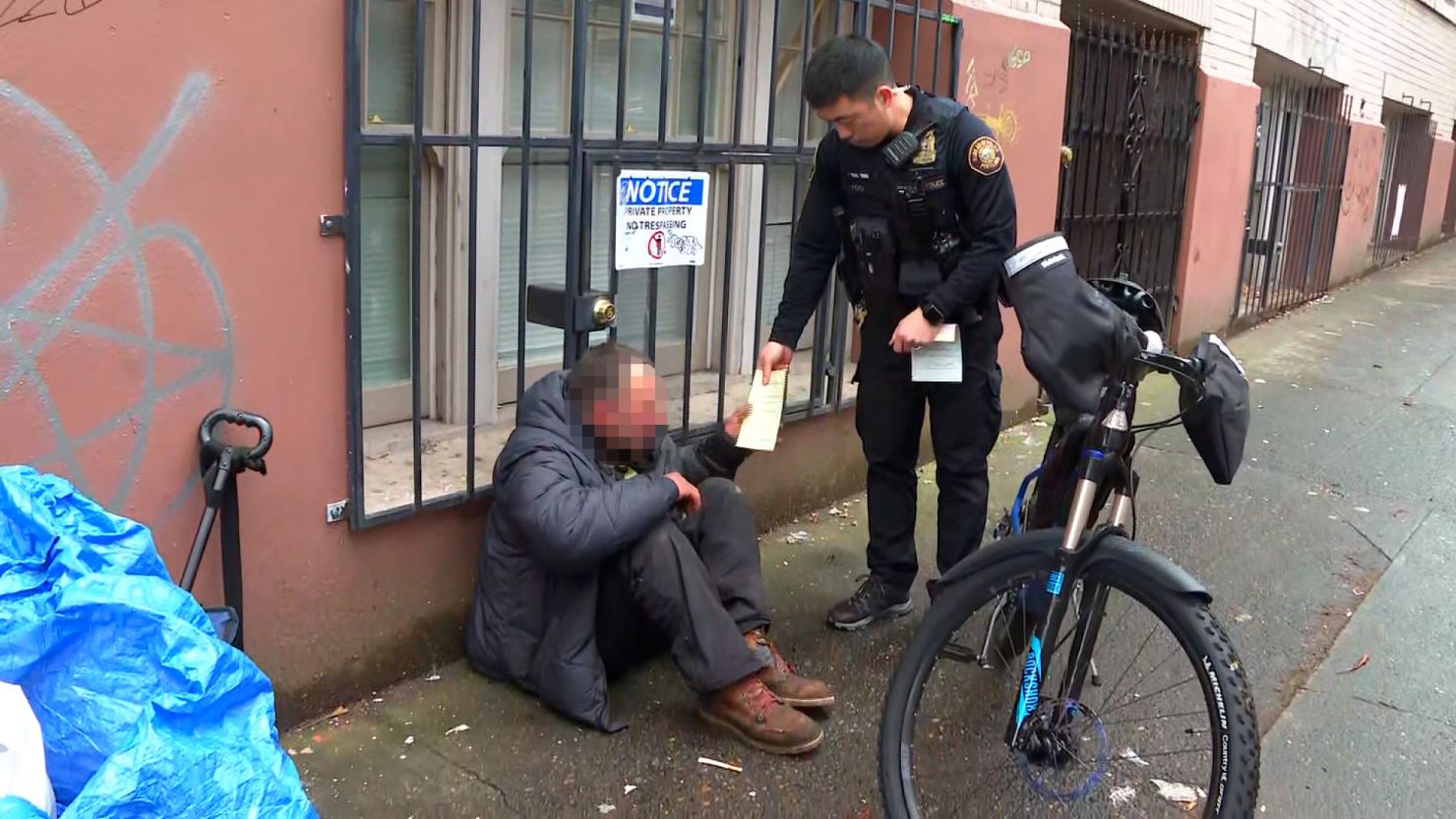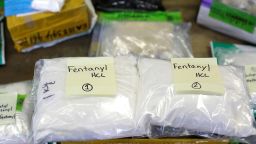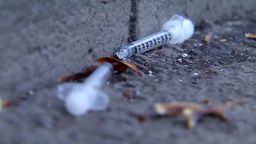Biking in one of the West Coast’s biggest cities, police Officer Donny Mathew spotted something out of the corner of his eye.
It was a glint, shining off a piece of aluminum foil in the hand of someone on the sidewalk.
Mathew knew the man was using it to cook. And he knew the substance in the small, makeshift pan was the same potent, intensely addictive, synthetic opioid that has torn through Portland, Oregon, and countless other American communities in recent years, leaving a stunning trail of debilitating addiction and death:
Fentanyl.
“He was still actively smoking right when we rolled up,” said Mathew.
The officer, his feet on the pedals, braked hard into a turn. He quickly dismounted his bike, approached the man and handed over a $100 citation.
But that wasn’t all. Mathew also handed him a card printed with a phone number that could help erase both his new fine and – in the longer term, civic leaders here hope – the sort of illicit substance abuse that’s escalated on these streets amid the nationwide opioid epidemic.
“They call this hotline, and they can get the citation paid for,” the officer explained – but only if they agree, with the trained substance abuse counselors on the line, to a medical screening that could serve as a critical gateway to addiction treatment.
The strategy is in place as the city’s mayor, its county chairperson and the governor – all Democrats – in late January declared at 90-day state of emergency to address the public health and safety crisis driven by fentanyl in Portland’s Central City.
State lawmakers, meanwhile, overwhelmingly approved a bill this week to reverse a 2020 measure that decriminalized possession of hard substances, including fentanyl, which now awaits approval by the state’s governor.
Gov. Tina Kotek hasn’t decided whether to approve or veto the bill, a spokesperson for her office told CNN on Sunday.
“Our country and our state have never seen a drug this deadly and addictive, and all are grappling with how to respond,” Kotek said in a news release in late January, announcing Portland’s fentanyl emergency declaration, vowing “unprecedented collaboration and focused resources” ahead of a “roadmap for next steps.”
Off the bat, drug dealer arrests have increased, the fire department has launched an overdose rapid response team and outreach workers have begun “saturating” hot spots to help connect people with treatment, recovery and housing services, the city’s Community Safety Division Director Mike Myers said Thursday at a news conference.
Also expected under the emergency declaration are public health campaigns and a further effort by officials to pool and “use data to identify and respond to acute needs and gaps in service,” then figure out how to fill them quickly – and long after the three-month emergency period expires.
This formidable undertaking reflects the particular challenges of combatting fentanyl, which is up to 100 times more potent than morphine and very cheap to make and mix with other illicit substances.
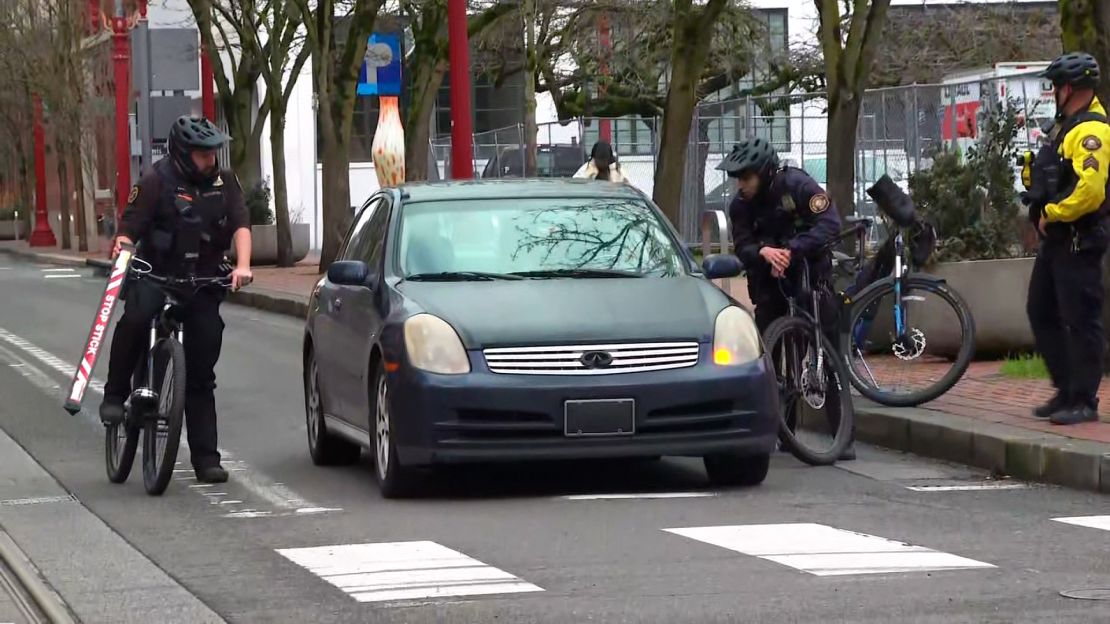
“This addictive behavior is not something to be taken lightly and, not to be like, ‘Oh, just get a job,’ or ‘Just get help,’” said Portland Police Chief Bob Day. “There are demons there that I could never understand.”
The emergency mission, in fact, is nothing less than a race against a killer, said the head of outreach and treatment group Central City Concern. Fentanyl is “dirt cheap, it’s very dangerous,” Dr. Andy Mendenhall told CNN, and “it’s ubiquitous.”
‘An extremely dangerous spike’
As public health workers, outreach teams and police unite for the task, they forge ahead under Measure 110, a 2020 law enacted by statewide vote that declared a “health-based approach to addiction and overdose is more effective, humane and cost-effective than criminal punishments.”
“Essentially what has happened is drugs in Oregon are the same as a traffic ticket,” Portland police Officer David Baer told CNN.
Meantime, opioid overdose deaths in Oregon have increased from 280 in 2019 to 956 in 2022, with 628 recorded so far for last year, state data show. “We’re on an extremely dangerous spike,” Multnomah County Health Director Rachael Banks told CNN.
Nationwide, the tally of drug overdose deaths involving fentanyl rose almost four-fold over five years through 2021, the US Centers for Disease Control and Prevention reported. And though early research, published in JAMA Psychiatry, suggests no link between Measure 110 and Oregon’s increase in fatal overdoses, critics have blamed the law for the mounting toll.
“You look at what has happened: open fentanyl, open drugs on the streets,” said Republican state Rep. Jeff Helfrich said, decrying Measure 110 as “an unmitigated disaster.”
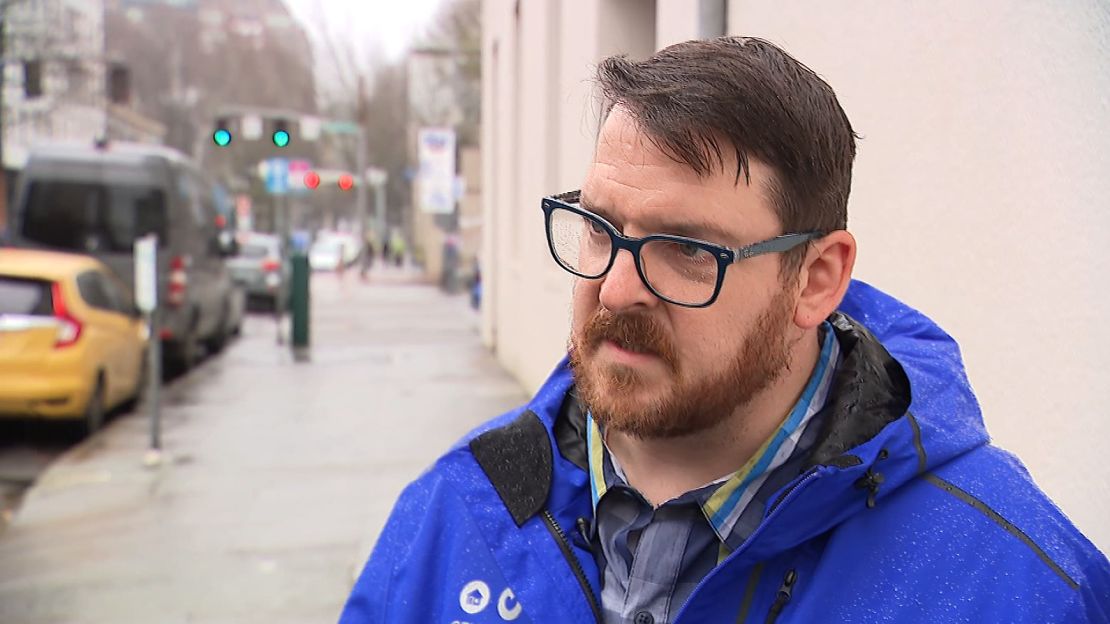
While the governor would not “Monday-morning quarterback” the cause of Portland’s downtown drug crisis and Mayor Ted Wheeler said city officials have “been working on it,” public health and outreach teams said their efforts to beat back fentanyl’s scourge are continually challenged by its extreme addictive quality.
“It’s one of those things that even though you love your family, even though you love your friends and you want to be an outstanding member of society, all you really think about is your next use or your next high,” said Central City Concern Program Supervisor Dave Crosby, who once was unhoused and addicted to drugs.
The first need is housing, doctor says
Fentanyl’s potency “makes this battle a completely different fight,” said Mendenhall, whose organization annually serves over 14,000 people. That includes medical withdrawal management help for over 3,000 people each year, about half of whom use the drug, he said.
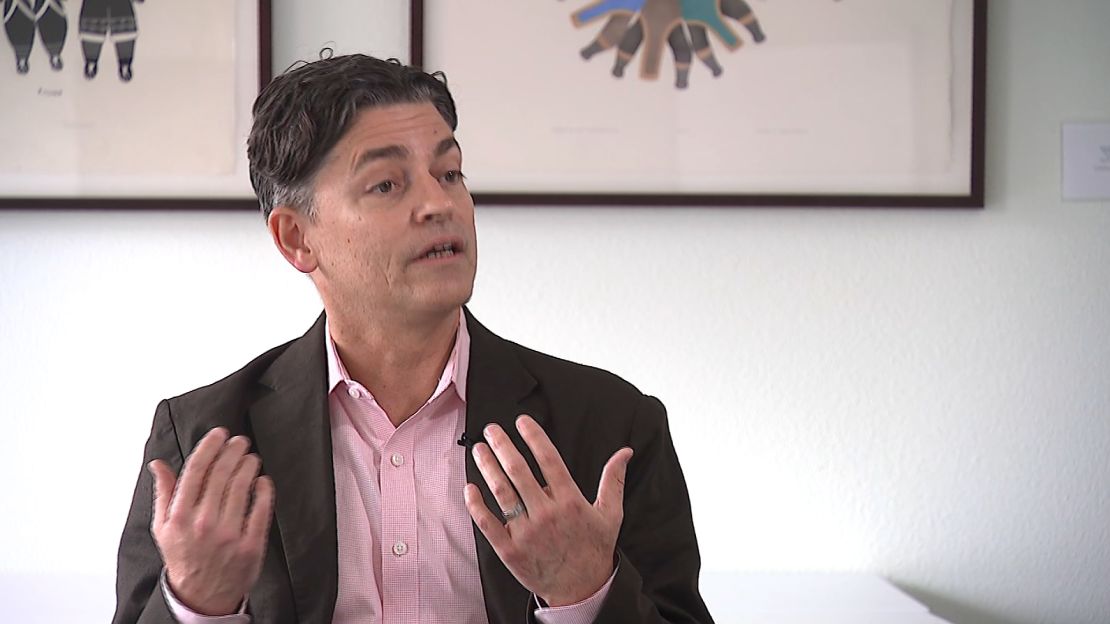
As for a common trope that fentanyl users should simply exercise personal responsibility and pull themselves out of their downward spiral, the solution is not so simple, Mendenhall said, pointing to myriad personal factors that can lead patients to substance use, including multigenerational poverty, job loss, mental illness, depression and anxiety.
“The first thing those folks need is shelter or housing in order to get stabilized enough to then potentially benefit from treatment resources,” Mendenhall said. As it stands, though, “there’s simply not enough resources for people who are seeking treatment and recovery.”
And while declaring a public health and safety emergency is an important step, it is not akin to flipping a switch and unleashing a flow of resources and funding, officials said. Rather, it starts with gathering critical information about the true nature of the crisis.
The emergency declaration in Portland’s Central City “allows many of the agencies to start to communicate and share data where we haven’t always done in the past,” said Dr. Richard Bruno, Multnomah County’s health officer. State, county and city officials are now operating under a unified command, officials said, to best determine what gaps in resources exist, what more can be done and where they should go.
Action will be taken, officials said, to increase public awareness of fentanyl’s addictive qualities, create wider access to overdose reversal agents like naloxone and expand access to treatment and recovery, including ramping up visibility and coordination among non-profits that provide housing and addiction services.
‘These are human beings’
On the same day the Portland officers tried to steer the man with the shiny fentanyl pan to treatment services, they pulled up on bikes to another man openly using the drug.
They gave him a citation – and a treatment card – as his friend Chelan stood nearby.
She had spent over two years in prison for delivery of methamphetamine and heroin, and she’d also tried – but failed, so far – to curb her own fentanyl use through treatment, Chelan told CNN, which is referring to her by one name to ensure her privacy after she shared details of her personal struggle with drugs.
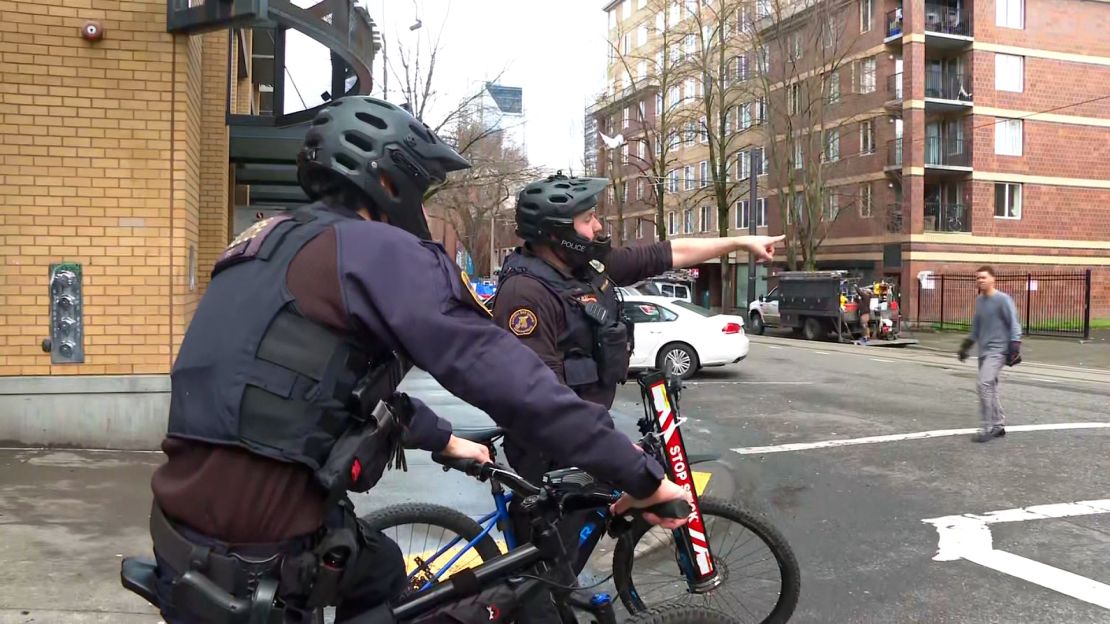
Asked to explain what it’s like to try to stop using fentanyl, Chelan was speechless: “There are not many words to describe how difficult that is,” she said.
But locking up people who struggle to stop abusing drugs is not the answer, she said. “It doesn’t do anybody any good to go to jail,” she said. “It’s like a bunch of criminals get together to talk about how to do crime better. If you weren’t traumatized before jail, you will be afterwards.”
Even seeking help, though, can be a struggle: “People don’t know where to go, or who to call, or how to access the resources,” Chelan said. “There’s treatment facilities, but they’re all backed up right now.”
As Portland’s state of emergency leans hard into delivering tangible help, it is also vital not to lose sight of the humanity, said Crosby of Central City Concern.
“That’s someone’s daughter, that’s someone’s son, that’s someone’s parent,” he said. “And until we look at it from a person-centered approach – these are people, these are human beings, we need to help each other – the systemic change is not going to grow.”
CNN’s Andi Babineau and Anna-Maja Rappard contributed to this report.


